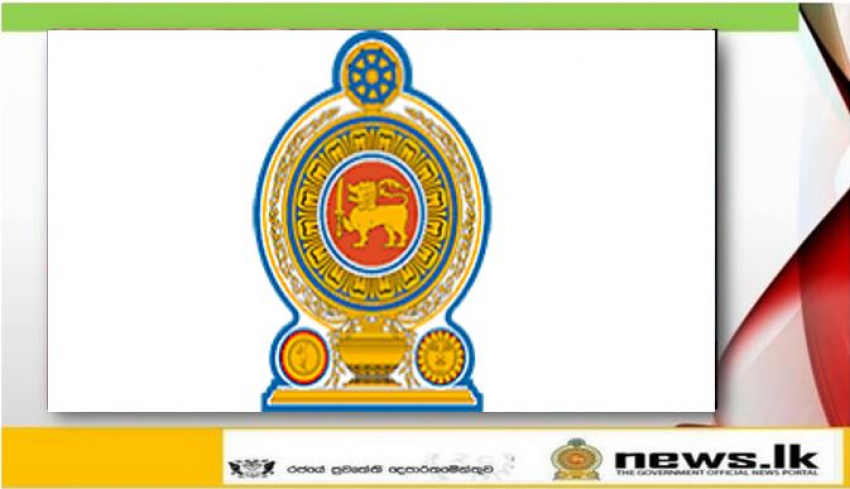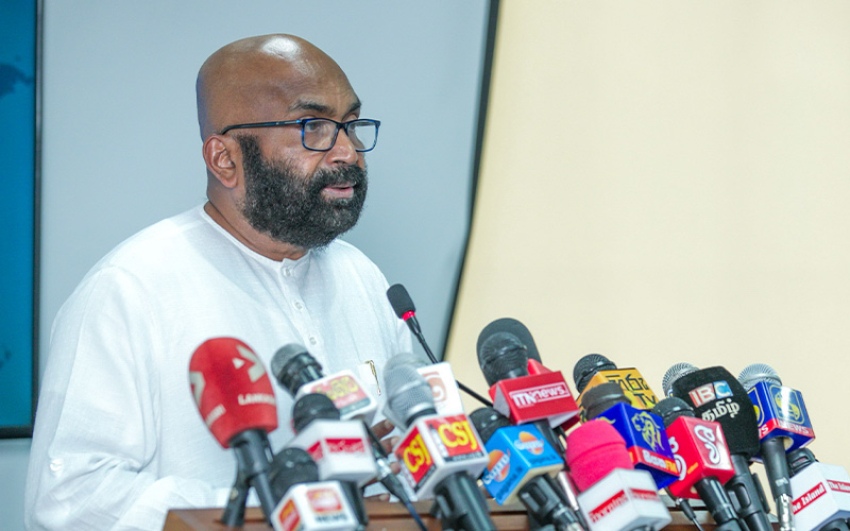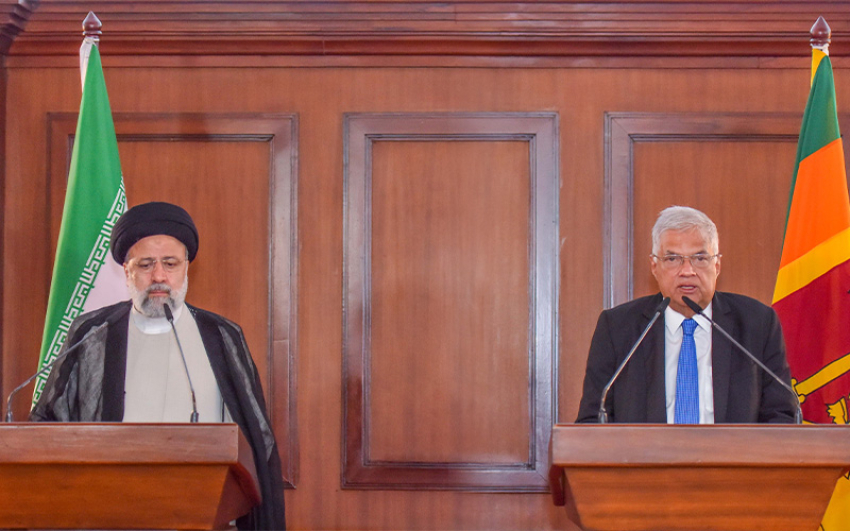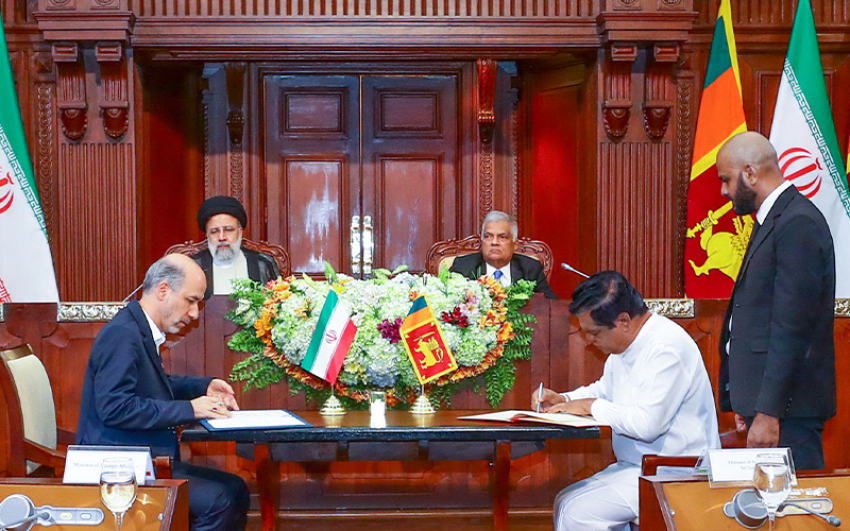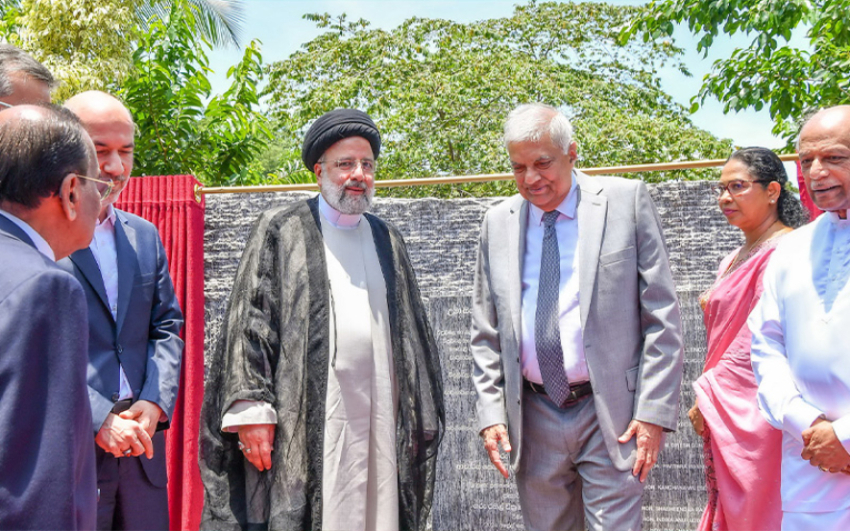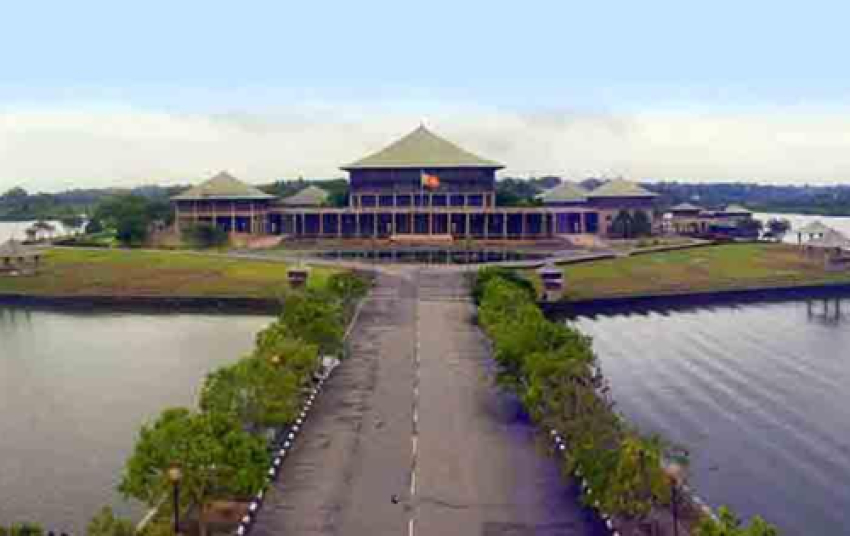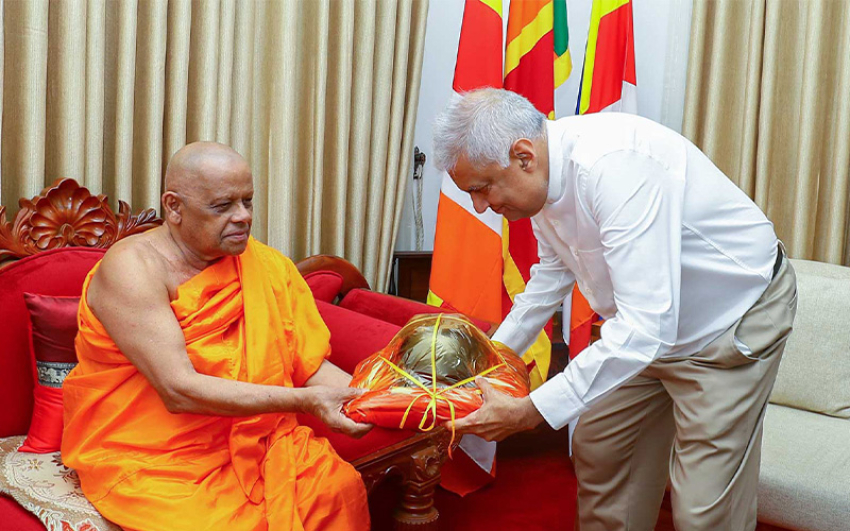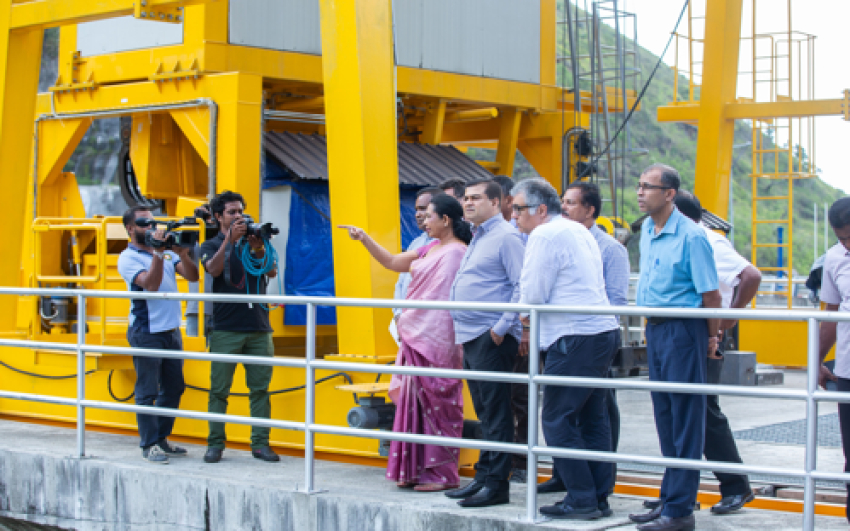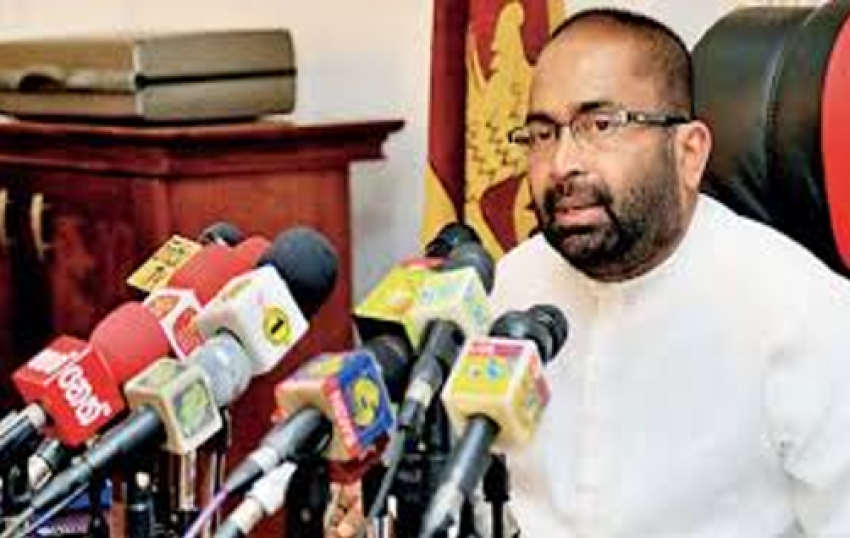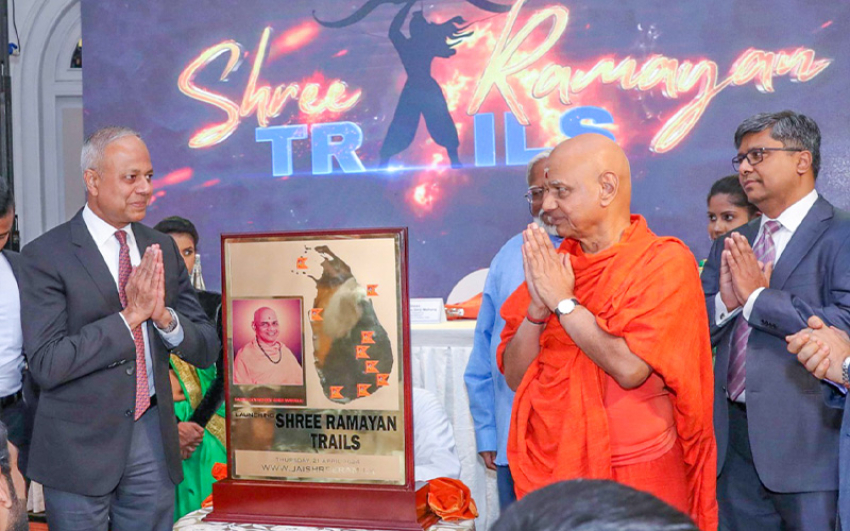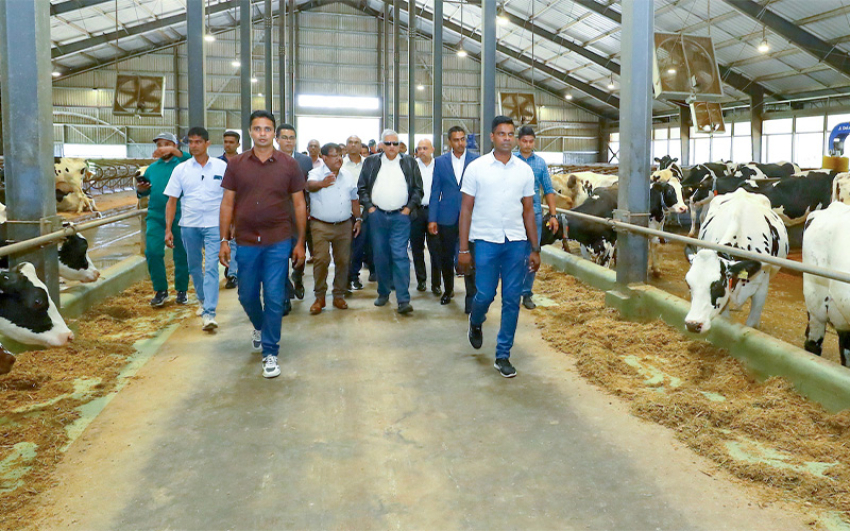President pledges to support independence of the judiciary and ensures its functioning is free of politicization and other forms of interference
Marking a new milestone in the judicial system of the country 21 new Judges to superior courts were sworn in before President Gotabaya Rajapaksa.
Six new Judges to the Supreme Court and 14 new Judges to the Court of Appeal took oaths before President Rajapaksa at the Presidential Secretariat Dece; (1).
Judges appointed to the Supreme Court
Hon. Justice A. H. M. Dilip Nawaz
Hon. Justice Kumudini Wickremasinghe
Hon. Justice Anthony Lalith Shiran Gooneratne
Hon. Justice Janak de Silva
Hon. Justice Arachchige Achala Uthpalavarna Wengappuli
Hon. Justice Mahinda Abeysinghe Samayawardhena
Justice Arjuna Obeysekara was sworn in as the President of the Court of Appeal.
Judges appointed to the Court of Appeal
Ms Menaka Wijesundera
Mr D. N. Samarakoon
Mr M Prasantha de Silva
Mr M. T. M. Laffar
Mr C. Pradeep Keerthisinghe
Mr Sampath B Abayakoon
Mr M. S. K. B. Wijeratne
Mr S. U. B. Karalliyadde
Mr R. Gurusinghe
Mr G. A. D. Ganepola
Mrs K. K. A. V. Swarnadhipathi
Mr Mayadunne Corea
Mr Prabaharan Kumararatnam
Mr W. N. N. P. Iddawala
President Gotabaya Rajapaksa addressing the gathering pledged to support independence of the judiciary and ensured its functioning is free of politicization and other forms of interference.
“The judicial cadre of both the Supreme Court and the Court of Appeal has remained static since 1978. Although the necessity of increasing the number of judges in the superior courts has been mooted several times in the past, the number of judges in both courts has remained the same for over forty years. There have been many advancements in the law and litigation has increased exponentially in this time. However, there has not been a corresponding increase in the number of judges”.
The efficient administration of justice is not only important in terms of upholding the rule of law, it is also vital to the economic development of this nation President said adding that reliable, efficient and effective dispute resolution through the justice system will foster the nation’s progress.
Chief Justice Jayantha C Jayasooriya, Secretary to the President P. B. Jayasundera, Principal Advisor to the President Lalith Weeratunga were also present.
Full text of the speech at the swearing in of Judges
Honourable Chief Justice of Sri Lanka
Honourable Justices of the Supreme Court
Honourable President of the Court of Appeal
Honourable Justices of the Court of Appeal
Ladies and gentlemen
It gives me great pleasure to address Your Lordships on the occasion of your elevation to the superior courts of our country. First of all, let me wish your Lordships a very successful tenure. In my view, this is the first time in judicial history that a mass swearing in of this magnitude has taken place. I consider it a signal honour to administer oaths to such a galaxy of men and women so learned in the law.
The judicial cadre of both the Supreme Court and the Court of Appeal has remained static since 1978. Although the necessity of increasing the number of judges in the superior courts has been mooted several times in the past, the number of judges in both courts has remained the same for over forty years. There have been many advancements in the law and litigation has increased exponentially in this time. However, there has not been a corresponding increase in the number of judges.
It is therefore a matter of pride that our Government has redressed this long felt need through the 20th Amendment to the Constitution. Amongst the many reasons that prompted this change is the perennial problem of the law’s delays.
There is a popular saying that “Justice delayed is Justice denied”. Unfortunately, it is clear that while more and more cases were being instituted in the superior courts, there was insufficient judicial manpower to hear them fast and dispense justice. This was not a situation conducive to public confidence, nor to the proper functioning of the republic.
The efficient administration of justice is not only important in terms of upholding the rule of law, it is also vital to the economic development of this nation. Reliable, efficient and effective dispute resolution through the justice system will foster the nation’s progress.
At present, it takes a long time to enforce a contract in Sri Lanka. We have been ranked 161st out of 189 countries for the enforcement of contracts, and the Sri Lankan legal system is ranked 5th out of 8 in South Asia. These indicators must improve.
The Government understands the importance of a strong, efficient and independent justice system, and it is deeply aware of the need to enhance its capacity. Today’s solemn swearing in ceremony took place against this backdrop, and as a key step taken by the Government to redress this issue.
Access to justice today is a fundamental right. It is the sacred duty and obligation of the state to provide an enabling environment to make that right real and not imaginary. Access to justice must be transparent if the people are to have confidence and faith in the judicial system.
Whether we perform our role within the Executive, the Legislature or the Judiciary, we are all custodians of that faith. We hold our office in trust for the people. As judges, the people look to you to uphold the immense dignities of your high office, to discharge your duties with integrity and independence, and to ensure that justice is dispensed equitably to all.
In this context, it is a matter of some concern that there has been an onslaught on the dignity and independence of legal systems. I am deeply committed to supporting the independence of the judiciary and ensuring that its functioning is free of politicization and other forms of interference. The judiciary must also rise and use its powers to fight this menace. Freedom of speech is not a license to defame and malign anyone, least of all judge

